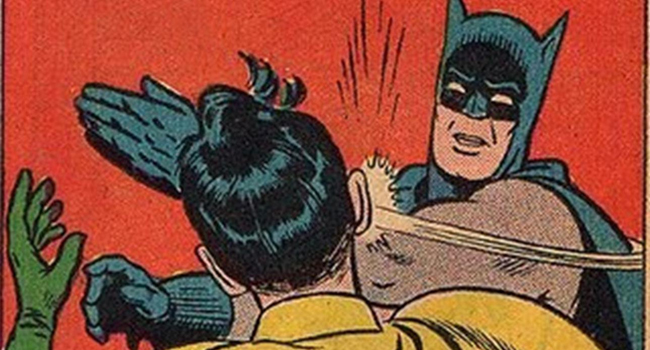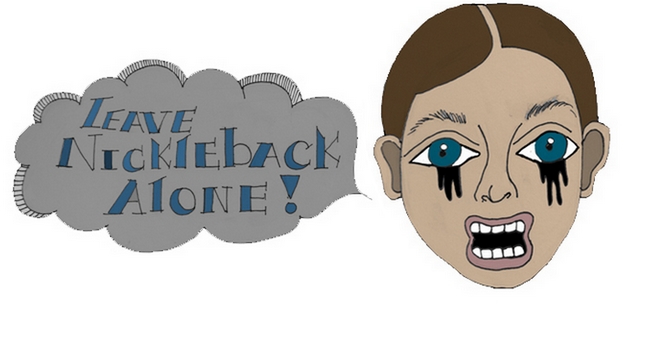The Chicago area experienced a major media milestone recently, when Benjamin L. Homel, professionally known as Randy Michaels, and his investment group bought “modern rock” alternative station Q101 and classic rock (“that really rocks”) WLUP 97.9, in addition to an FM station in New York City.
For now, Michaels is leaving “The Loop”‘s format alone, but for Q101 they abandoned the “alternative” format, which had put the station in the ratings toilet during recent years, and changed to news talk, aping the formats of the current ratings leader, WBBM-AM 780.
In a June 2011 New York Times article, Tom Taylor, the news editor for Radio-Info.com, called Mr. Michaels’ return “one of the stories of the year in radio,” adding that he is “charismatic, controversial and talented, and he has always attracted attention and talent.”
Now the driving force at the helm of Merlin Media, Michaels’ most recent controversial role was as the former CEO of The Tribune Company, parent company of Chicago Tribune and numerous other media outlets. He resigned last October under mounting pressure from the board and rising resentment amongst their employees after he (and his approximately 20 radio cronies that came with him) allegedly made it a bastion of sexism and childish pranks. Now he has returned to Chicago and his first love, radio. Michaels made his “name” as a shock jock, including such less-than-memorable hijinks as pretending to puree a frog in a blender and farting on the air.
“My favorite format has always been spoken radio,” Michaels said in a statement. “I’ve long had a nostalgic love affair with the big AM stations known for the format, and today—as music moves to the iPod—it’s time for spoken word to move to FM. I’m proud to be part of Chicago’s only 24-hour all-news station.”
But is that really what has happened? Has music moved to the iPod, and removed the “necessity” of an “alternative” rock station in such a large market as Chicago? And now of course, WXRT, 93.1 FM, “Chicago’s Finest Rock,” has been heard to call itself “Chicago’s Original Alternative,” obviously trying to court the former audience of Q101.
The reality is that Q101’s audience, at least what was left of it, has become pretty spoiled by the longevity of its format, which has remained relatively stable aside from a few minor tweaks for almost 20 years, since 1992. Radio station’s formats and staffs, just like hotel flags, change all the time, primarily steered by the draw of the almighty dollar. And just like everything else driven by money, the quickest route to the gravy train is often seen as copying whatever is successful for someone else.
Q101 started being more geared toward “adult alternative” in its early days, but Program Director Bill Gamble saw the station as the Midwest’s answer to LA’s KROQ-FM 106.7, and did his best to copy the venerable. Meanwhile, in the music department, their radio was tuned to Rock 103.5, and once that station met their demise, Q101 was free to bring in heavier “alternative” acts like Metallica (in addition to boosting their ratings by hiring morning shock-jock Erich “Mancow” Muller away from 103.5).
Q101 had been for sale for a while, so insiders were not surprised when the station was sold, and when that happens, it’s never a surprise when formats change and DJs are let go. Job security is an illusion anywhere nowadays, and that’s always been the case for radio personalities.
One such personality is former Q101 DJ James VanOsdol, who is now writing a book entitled “Smells Like Rock Radio: The Q101 Oral History,” which has just been successfully funded through a Kickstarter campaign. VanOsdol commented in an e-mail that Q101’s demise was “disappointing, though not surprising—the station had been on the block for months. However, it is strange to think that a handful of majorly huge artists, Nine Inch Nails and Tool among them, no longer have an FM outlet in Chicago.” When asked if the “alternative” or “modern rock” era was over, he responded: “The alternative format has been struggling for the past several years on FM radio. Like any format, it will bounce back.”
When radio formats change, it usually happens with no notice to the listener, but Q101 was an exception. On the last day of Q101’s broadcast on Thursday, July 14, the previous owners, Emmis Communications, allowed the DJs to go pretty much freeform, and allowed quite a few past Q101 employees to come on the air and “reminisce” about their time at the station. VanOsdol, for example, played a track by legendary Chicago punk rockers Naked Raygun—not what most listeners were used to hearing on a Thursday afternoon on Q101.
In a recent interview with Billy Corgan of The Smashing Pumpkins, Chicago Tribune’s Greg Kot asked him about the demise of Q101. Corgan employed a Star Trek reference and responded, “At some point, all of those stations got taken over by the corporate … borg, and Q101, as many of those stations did, stopped being a local station first, serving local community taste and started serving the national tastes … normally dictated by New York and Los Angeles.” Corgan went on to reveal that he was invited to go on the air to “reminisce” on the final day, but he would not have been allowed by the new management to talk about the transfer of ownership, so he declined that offer. He wrapped up by saying: “It’s all collapsing in on itself because it’s no longer about music, so RIP.”
Indeed, in a piece on Randy Michaels’ previous venture in TVNewsday, the acquisition of New York Times Co.’s TV stations, Sean Ross of Edison Media Research was quoted as saying that “[Michaels] became the poster child for what people didn’t like about corporate radio. The irony was Randy was someone who really loved the medium … Randy was—and remains—a true believer of the concept of better living through national radio.”
What will become of local Chicago alternative rock, now that Q101’s Local 101, hosted by DJ Chris Payne, will no longer provide an outlet for local musicians? As VanOsdol puts it, “Any time you take away a potential outlet for exposure, it impacts struggling and developing bands.” Of course, WXRT has its longrunning “Local Anesthetic” weekly program, but there is now one less avenue to publicize your band’s music and live shows.
One source of comfort comes in the form of a locally based, nonprofit, noncommercial radio station out of from Chicago’s North Center, CHIRP Radio. CHIRP has been streaming live at www.chirpradio.org since January 17, 2010, and plays at least two songs an hour by local musicians but is otherwise fairly freeform—much of the musical content determined by the DJs themselves. Having recently been instrumental in lobbying for the successful passage of the Local Community Radio Act, CHIRP hopes to obtain a broadcast frequency on the FM dial within the next few years.
It’s unlikely that local volunteer upstarts like CHIRP heavily eroded the listenership of corporate behemoth Q101, but given Michaels’ statement that music is moving to iPods nowadays, it makes one wonder if internet radio as an entity has impacted “terrestrial” radio as well. After all, not everyone wants to listen to their own music “shuffle” all the time.
Perhaps the end of Q101 is merely the end of a crisis that began with the success of the format in the early 1990s. In 1992 the New Music Seminar in New York City, a panel discussion that explored the question, “Now that alternative isn’t, now what?” The question, “Alternative to what?” was asked a lot in those days after the success of R.E.M., Red Hot Chili Peppers and Nirvana—as one panelist put it, alternative used to be defined as “anything that doesn’t sell records.”
Now that nobody is selling records, at least not like they used to, in the age of file sharing and music ripping, is it possible that not just alternative music, but all music radio will go extinct as well on the FM dial? Only time can tell, and the same can be said of what will occur with the three new radio outlets under Michaels’s leadership.
Meanwhile, although WKQX 101.1 FM may be no more, Q101 the radio station may be around for a while, in some form. According to their website they are looking for a new broadcast home, and the radio station is currently still streaming “alternative rock” music online. But if you want to listen to it in your car, that might be a bit more difficult.



